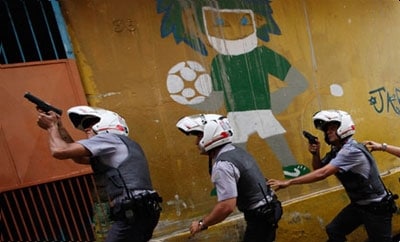São Paulo passed a resolution that bans police from taking crime scene victims to the ER, an effort to rein in cops who execute alleged criminals and then report them as killed while “resisting” arrest.
The resolution applies to São Paulo state, Brazil’s most populous, and went into effect January 8, as Folha reports. Under its terms, police cannot remove an injured victim from a crime scene. Only the emergency response service, known by its acronym SAMU, may do so.
It is not clear whether police are allowed to provide emergency first aid to victims while waiting for SAMU to arrive. However, the resolution does state that the emergency team can provide instructions on applying first aid via telephone, before arriving at the crime scene.
In a more symbolic move, the measure also changes the term used to refer to police killings. Instead of “resistance” killings, they will now be known as killings incurred during “police intervention.”
InSight Crime Analysis
The new policy appears well-justified and has been well-received. São Paulo’s Secretary of Public Security said the measure will make it more difficult for police to tamper with crime scenes. Brazil’s police have been frequently accused of covering up evidence during reported shootings, in order to make it look as though the victim was killed while resisting arrest.
As Washington-based Human Rights Watch (HRW) has documented, together São Paulo and Rio de Janeiro police kill more than 1,000 people a year in “resistance” killings.
HRW praised the new resolution, pointing out there have also been several documented cases in which police pretend to rescue people injured during shoot-outs, then actually execute them.
“The new rule will make it harder for these officers to cover up their crimes by pretending to rescue their victims before forensic investigators arrive,” the organization’s Americas director, Jose Miguel Vivanco, said in a statement.
Unsurprisingly, São Paulo police have complained about the measure, stating that it casts unwarranted suspicion on the police and could make them liable for failing to save those severely injured. SAMU has said that it takes less than ten minutes to respond to an emergency call, but this response time could be longer in smaller towns outside the state capital or even within harder-to-navigate city slums.

